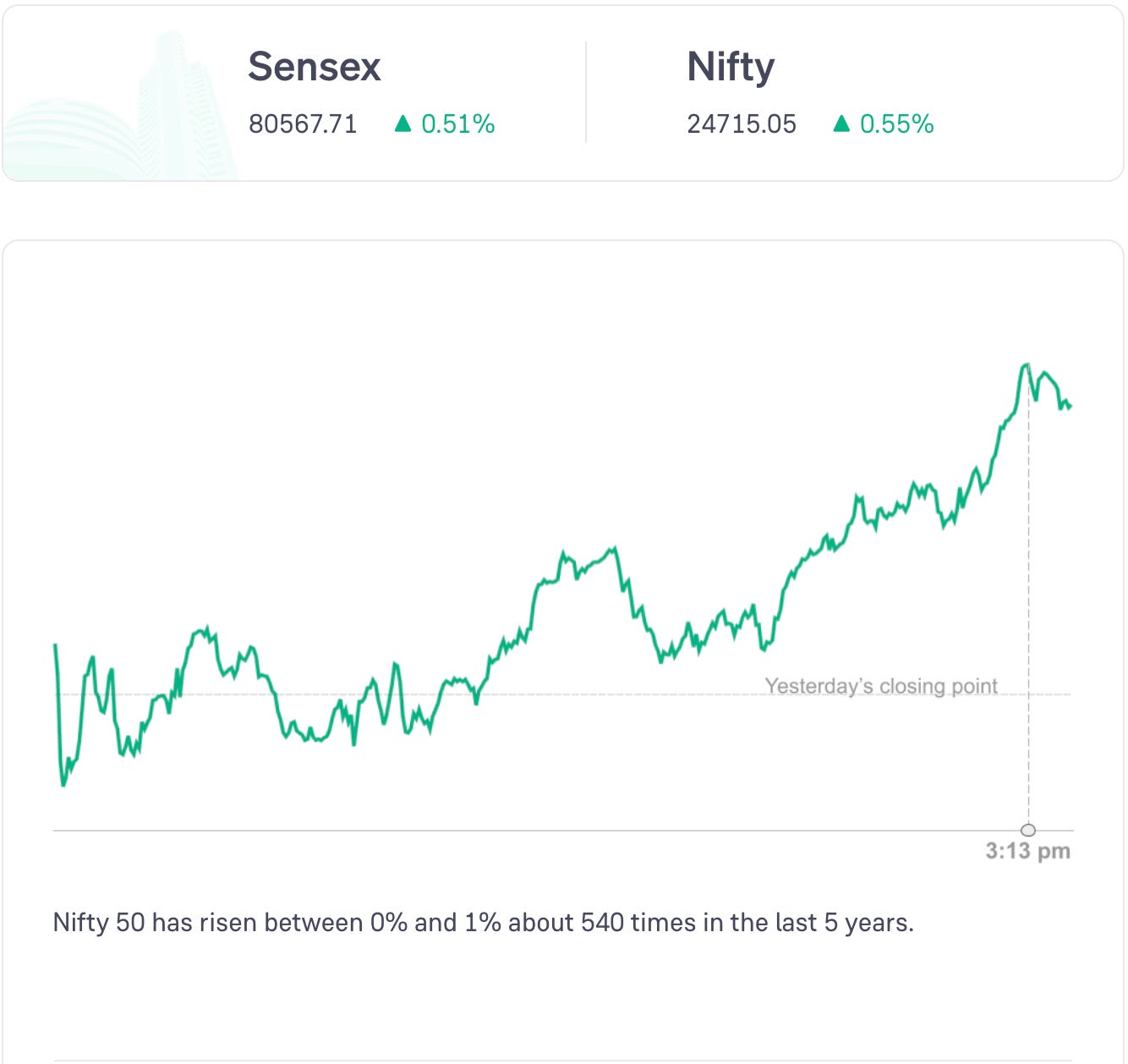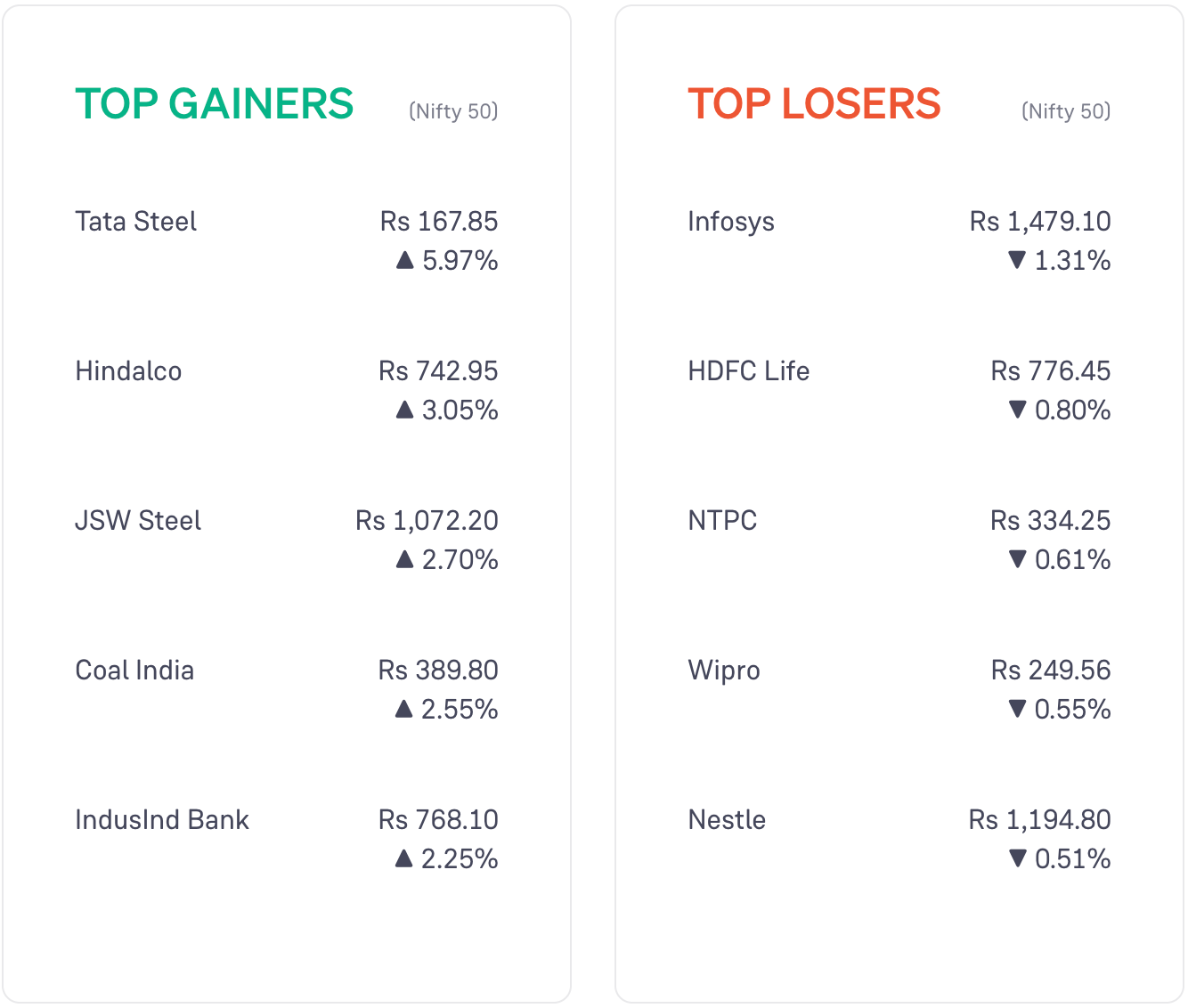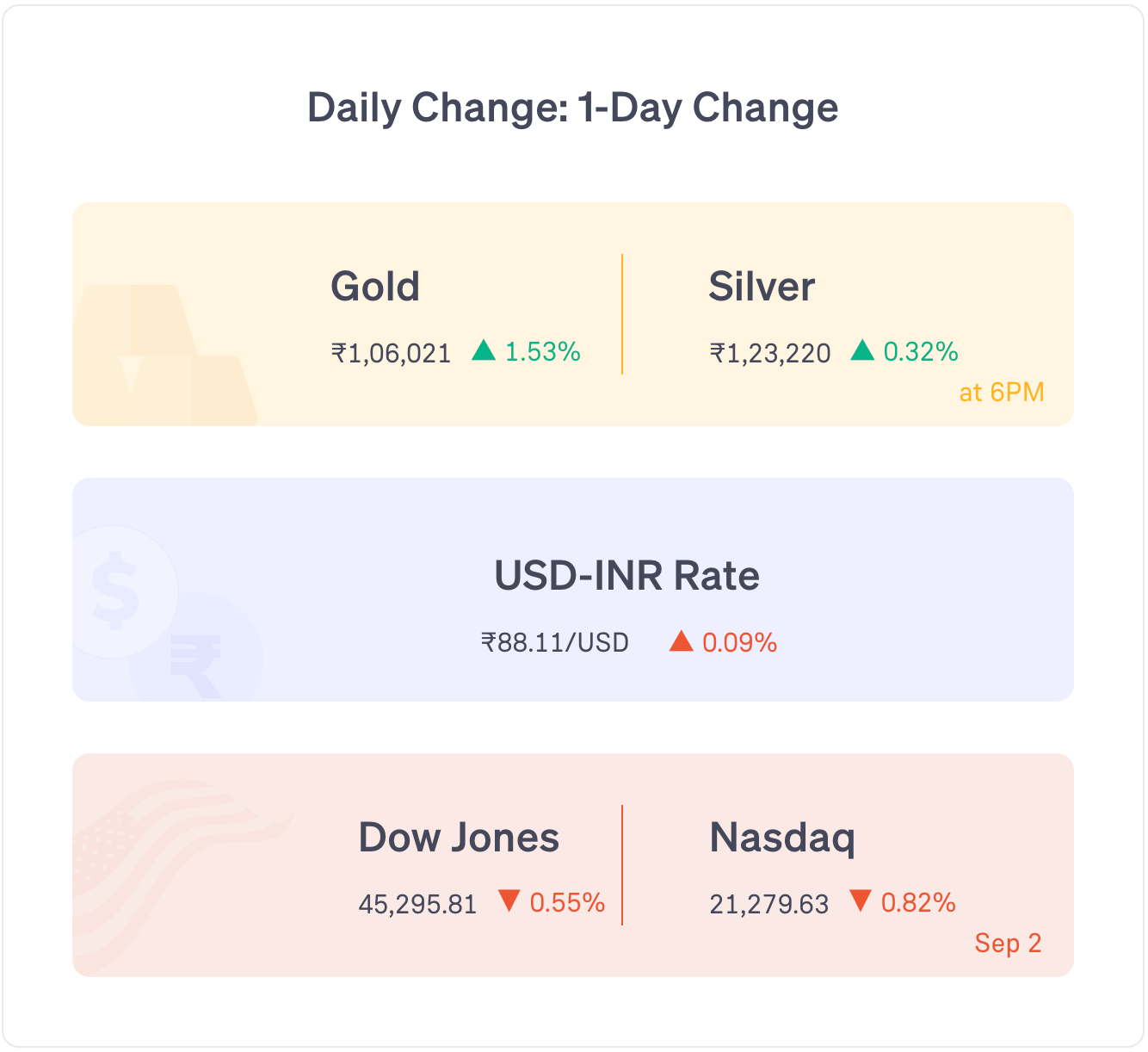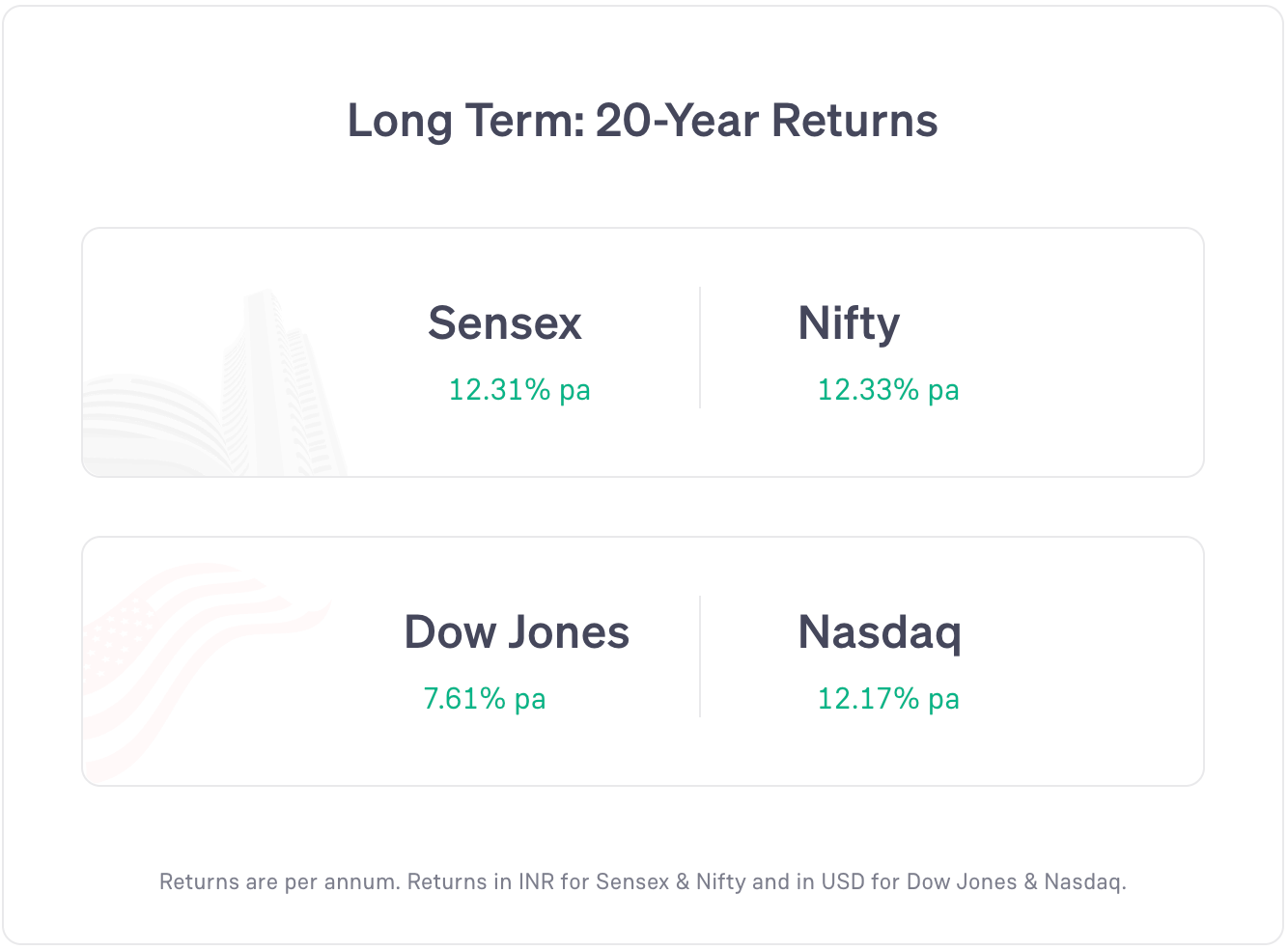GST decisions expected tomorrow, Jane Street files appeal, & more - Groww Digest
Wednesday, 3 September 2025
Markets opened slightly above yesterday’s closing point.
Nifty 50 rose in the second half of the day. Optimism in the markets today might have been due to the GST council meeting. GST tax slab cuts are expected to boost consumption and growth.
All sectors’ stocks rose except for the IT stocks and media stocks. Metal stocks and pharma stocks rose the most.
Global markets: US markets and most Asian markets fell. Most European markets rose (as of 6 pm IST).
News
India’s services PMI reached a 15-year high of 62.9 in August (vs 60.5 in July). Composite PMI (manufacturing + services) rose to 63.2 (vs 61.1 in July).
Jane Street has appealed to India’s Securities Appellate Tribunal (SAT), saying SEBI didn’t provide critical documents needed to defend against its market manipulation case. SEBI had earlier banned the firm from trading in the Indian markets.
Vikran Engineering IPO got listed on the stock markets with a 2.06% premium over its issue price and closed 1.33% down at the end of the day.
Internet subscribers in India grew 3.48% from the last quarter, surpassing 1 billion in the April-June quarter: TRAI.
Stocks Updates
Varun Beverages: will invest up to 26% in Jager Renewables Two Pvt Ltd, a Rajasthan-based solar power SPV, to supply power for its facilities located in Rajasthan.
Lupin: received US FDA approval for Risperidone, a schizophrenia and bipolar treatment drug. It had an estimated annual sales of $190 million in the US.
Muthoot Finance: issued $600 million worth of secured notes at 6.375% interest rate, maturing in 2030.
Waaree Energies: will acquire 64% of Kotson’s Pvt Ltd for Rs 192 crore and 100% of Impactgrid Renewables to expand into the renewable energy sector.
Jio Financial: allotted 50 crore warrants at Rs 316.50 each to promoter group entities. It raised Rs 3,956 crore upfront and promoters will pay the rest when converting these warrants to shares.
SBI: raised $500 million through 5-year tenure unsecured bonds at 4.5% interest rate.
Indus Towers: board approved expansion into international markets, starting with Nigeria, Uganda, and Zambia, for Africa’s telecom tower market.
Word of the Day
Price-to-Book Ratio (P/B ratio)
It compares a company’s market value to its book value.
The market value is what investors are willing to pay for the company’s shares, while the book value is the value of the company’s assets minus its liabilities, as recorded in its financial statements.
Like the P/E ratio, investors use the P/B ratio to see if a stock is overvalued or undervalued compared to its actual net assets.
P/B Ratio = Market Price per Share/ Book Value per Share
The P/B ratio becomes useful for capital-intensive industries like banking, insurance, real estate, and utilities, where tangible assets make up a large part of the business.
Example: for the banking industry, the P/B ratio is more relevant than the P/E ratio.
This is because it shows how the market values the bank’s assets (loans and investments).
These matter more than the profits, because profits can fluctuate.
6 Day Course
Theme: shareholder meeting
Day 3: Wednesday
Yesterday, we spoke of ordinary business and annual general meetings.
Now, we come to special business or Extra-ordinary General Meetings (EGMs).
These meetings are called for urgent matters where the discussion with shareholders cannot wait till the next AGM.
In the communication, the company has to state why they are calling an out of schedule shareholder’s meeting.
Examples of matters that are usually discussed in these meetings: acquisition or merger, name or structure change, emergency fund raise, removal of key members like directors before time, etc.
These meetings can also be called by shareholders who hold a significant stake in company if they feel the need for it.
Featured Question
“In SIP,I want to stop th existing MF and want to invest in different types of MF (mid cap, small cap)..if i stop the SIP but not withdraw the amount invested in the old MF..what will happen? will there be any penalty/charges for stopping the SIP?”
Nothing will happen. You can easily do this.
When you start an SIP, it is started forever. There is no period for SIPs. It will keep running till you cancel it.
So, you can cancel any time. There will be no charges/penalties/fees.
This is as long as you do not withdraw any amount.
If you withdraw before a certain period, you might have to pay a small penalty called the exit load.
This period and percentage of exit load varies from mutual fund to mutual fund.
Example: if you withdraw within 1 year from the date of investing in XYZ mutual fund, you will have to pay 1% of the withdrawal amount as exit load.
Besides this, depending on the amount of gains you have made, duration of investment, and the type of mutual fund, you may have to pay taxes to the government.
Did you like this edition?
Leave a feedback here!





